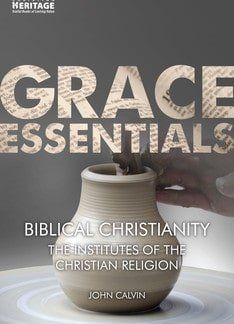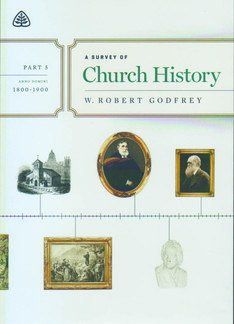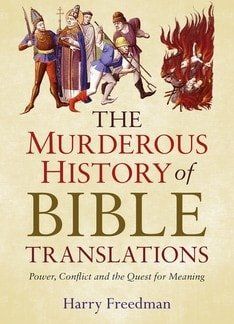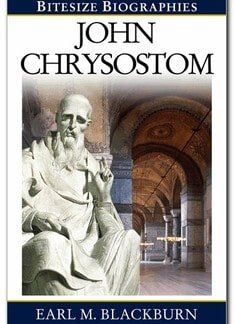Last month I suggested that the church had two essential functions to perform, one external and the other internal. Last time I focused on the external, namely, obedience to the Great Commission – because the church that does not evangelise must ultimately fossilise.
Now I want to identify the internal essentials. I suggest that God wants his church to focus on four essential activities, to ensure that his people bear fruit to his glory.
We find these essentials in Acts 2:42, where we read that the early church ‘continued steadfastly in the apostles’ doctrine and fellowship, and in breaking of bread, and in prayers’. This is God’s word which endures for ever.
Notice that the church ‘continued steadfastly’ in these four internal essentials. Note too that this is a single sentence, indicating the equal importance of all four activities.
They are the basic necessities — the staple diet that ensures spiritual growth and health within the local church.
They are given so that both the individual believer and the body collectively might be built up in knowledge and grace. Without these four activities, our witness and evangelism will be less effective.
Reformed churches have a tendency to focus on some of these essentials but rarely continue in all four. But God would have us persevere in all of them.
Apostles’ doctrine
The church is to continue steadfastly in the apostles’ doctrine or teaching, which is, of course, preserved for us in the New Testament. This comes first on the list because it is of primary importance.
Why? Because the Scripture ‘is able to make [us] wise unto salvation through faith which is in Christ Jesus’ (2 Timothy 3:15). We must preach, teach and proclaim the gospel, but we must also move beyond the basics of the faith.
God’s word declares, ‘All scripture is given by inspiration of God, and is profitable for doctrine, for reproof, for correction, for instruction in righteousness: that the man of God may be perfect, thoroughly furnished unto all good works’ (2 Timothy 3:16-17).
The Bible is the truth, the whole truth and nothing but the truth — and every Christian must strive not only to be a hearer of the word but a doer also.
Clericalism
We read that ‘he gave some, apostles; and some, prophets; and some, evangelists; and some, pastors and teachers; for the perfecting of the saints, for the work of the ministry, for the edifying of the body of Christ; till we all come, in the unity of the faith and of the knowledge of the Son of God, unto a perfect man, unto the measure of the stature of the fulness of Christ’ (Ephesians 4:11-13).
Look closely here! Ministers and pastors are to teach ‘the whole counsel of God’ so as to equip the saints for works of ministry — and all are to seek maturity (‘perfection’) in the faith.
How often this is forgotten in Reformed churches. In many denominations and local churches, the doctrine of the priesthood of all believers has given way to an incipient clericalism — to the detriment of the body of Christ.
Church leaders must labour to ensure that believers are growing in knowledge and grace. They cannot simply assume that, because people regularly attend Lord’s Day services, they necessarily understand and apply the things they hear.
Individual and collective Bible study and devotional reading must be encouraged, to ensure that believers do not remain babes in the faith.
Believers are members of Christ’s school, and must continually apply themselves to the apostles’ teaching — and that teaching to themselves!
Fellowship
Secondly, we read that ‘all that believed were together, and had all things common; continuing daily with one accord’. They were ‘one in Christ’ and their oneness manifested itself not only in worship and witness but as they ‘continued … in fellowship’.
Paul reminds us that the church is the body of Christ and every believer has gifts which need to be utilised to build up, strengthen and encourage the whole.
Christians are brothers and sisters in Christ — those who have been adopted into God’s family and who can truly cry ‘Abba, Father’ as they draw near to God.
Why, then, do so many Reformed churches mirror the dysfunctional families of contemporary western society rather than the brotherhood instituted by God? We all know of churches where fellowship seems to be an alien concept.
Why are congregations so rarely encouraged to stay behind after worship for fellowship over tea and coffee? Or even a fellowship meal? How can Christians meet each week for two or three hours of worship yet rarely take the time to get to know one another? Why is there so little emphasis on fellowship?
Grace, love and joy
Does Scripture not exhort us to love one another; care for one another; support one another and encourage one another? We must fellowship regularly to make this a reality. Without true fellowship our churches become cold and uninviting.
It doesn’t take a great deal of imagination to recognise why the popular caricature of the dour, joyless and censorious Calvinist still survives in our day and generation! Some churches are as warm and inviting as a mortuary slab.
Where are the grace, love and joy? When strangers visit our churches, is the fruit of the Spirit clearly discernible?
Remember, ‘the fruit of the Spirit is love, joy, peace, longsuffering, gentleness, goodness, faith, meekness, temperance: against such there is no law’ (Galatians 5:18-23). But fruit that is invisible is not fruit at all!
Breaking bread
‘Breaking of bread’, I believe, is a clear reference to the Lord’s Supper. Christ our Lord says, ‘This do in remembrance of me’, so we should surely do it often. Yet in many Reformed churches the medieval Roman Catholic practice of irregular Communion has remained the norm.
This is the sacrament of Holy Communion, instituted and hallowed by Christ himself — assuring us that we are accepted in the Beloved. It reminds the believer that his own worthiness is as filthy rags, but that our salvation rests solely on the worthiness of Jesus Christ — who died for the sins of God’s elect and rose again for their justification.
It reminds us that Christ ‘is made unto us wisdom and righteousness and sanctification and redemption’. It assures us of glorification with Christ.
In coming to the Lord’s table, a man is to examine himself (1 Corinthians 11:28); not to determine whether he is good enough to come, but that he might recognise that he is never good enough — and that he must cast himself on the sheer grace, love and mercy of God.
In coming, he demonstrates his trust in the provision that God has made for his people in the person and work of his only begotten Son.
It is important to note that this is the Lord’s Supper, not the church’s. Yet this is often forgotten, and many godly men and women are refused admission to the table when visiting ‘Reformed’ churches away from home — because they are unknown to the local eldership or haven’t been baptised by immersion on profession of faith!
Such practices are surely inimical to true biblical ecumenism, denying the God-given unity believers have in Christ (Galatians 3:26-29).
Prayer
Last but not least, individual and corporate prayer is essential to the spiritual welfare of Christ’s church. It is not optional.
If in Scripture God talks to man, then in prayer man talks to God. What a wonderful privilege believers have in free and continual access to the holy of holies — where we can approach the throne of grace in and through Christ our Advocate and Mediator.
We are to ‘pray without ceasing’. We are to ‘give ourselves continually to prayer’. The apostle Paul says, ‘in everything by prayer and supplication…’
Christ our Lord says, ‘Ask, and it will be given to you; seek, and you will find; knock, and it will be opened to you: For everyone who asks receives, and he who seeks finds, and to him who knocks it will be opened’ (Matthew 7:7-8, NKJV).
Prayer is not the preserve of the pastor and a few choice men, but the privilege of every Christian. Our congregations need to be constantly reminded of this great truth.
We must pray for reformation and revival in these dark days; we must pray for spiritual and numerical growth in the churches; we must pray for ministers, pastors and church leaders, that they might be faithful and fearless in the proclamation of God’s word.
We must pray for one another and for opportunities to share the gospel with family, friends, neighbours and strangers; we must pray for those in authority and for those who suffer trial and tribulation for Christ’s sake; we must continue steadfast in prayer that Christ’s name might be truly exalted.
Let us have unity and be constant in essential things! And may God see fit to bless our endeavours, to his eternal praise. Soli Deo Gloria!
















